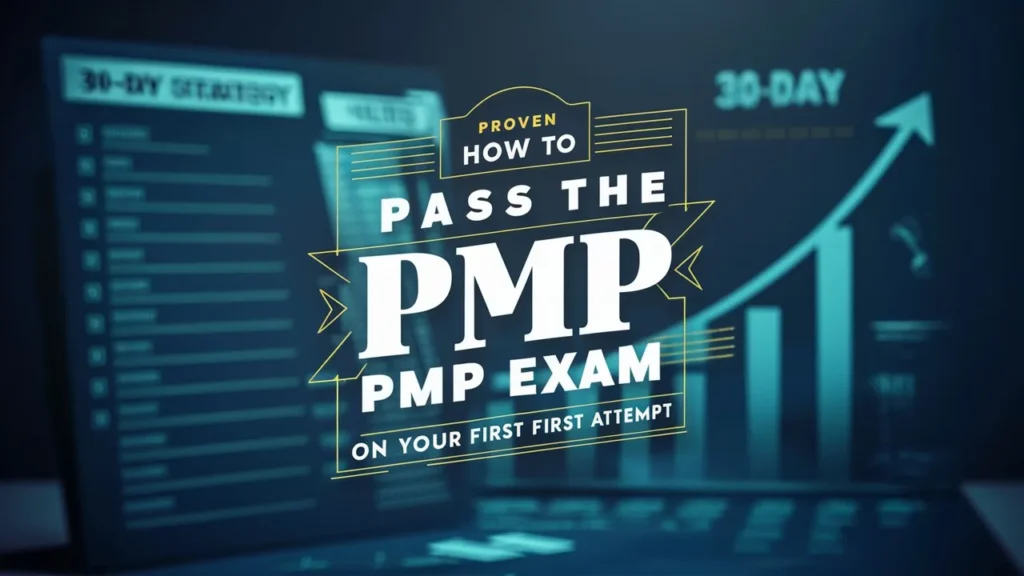Introduction
If you’re a project management professional with 8-30 years of experience, you’ve likely mastered complex projects, led diverse teams, and delivered under pressure. Now, you’re eyeing a PMI certification—PMP, CAPM, or PMI-ACP—to boost your credentials, secure a promotion, or pivot your career. But here’s the challenge: 70% of PMP aspirants fail their first attempt, and picking the wrong cert can waste your time and money. So, PMP vs CAPM vs PMI-ACP—which one’s your match?
The Project Management Institute (PMI) offers these three distinct paths, each with unique focuses, requirements, and payoffs. This blog breaks down their differences, weighs their value for seasoned PMs like you, and guides you to the right choice. Quick Tip: Assess your experience and goals first—then dive in. Let’s compare and decide.
Overview of PMI Certifications
What is PMP?
What is CAPM?
What is PMI-ACP?
The PMI Agile Certified Practitioner (PMI-ACP) targets agile practitioners, certifying expertise in frameworks like Scrum, Kanban, and Lean. It’s PMI’s fastest-growing cert, reflecting agile’s dominance (70% of projects use it, per PMI Pulse 2023).
Insight: For you, with 8-30 years, PMP or PMI-ACP likely aligns best—CAPM may feel too basic.
Key Differences: Eligibility, Exam, and Focus
Eligibility Requirements
- PMP:
- 4,500 hours (degree) or 7,500 hours (no degree) leading projects.
- 36 months of experience (degree) or 60 months (no degree).
- 35 contact hours of PM education.
Fit: Perfect if you’ve led projects for years.
- CAPM:
- 1,500 hours of PM experience OR 23 contact hours of PM education.
- No leadership requirement.
Fit: Entry-level—rarely suits your tenure.
- PMI-ACP:
- 2,000 hours of general PM experience (12 months).
- 1,500 hours of agile experience (8 months).
- 21 contact hours of agile training.
Fit: Great if agile’s your forte.
Exam Structure
- PMP: 180 questions, 230 minutes, mix of multiple-choice, drag-and-drop, hotspot. Covers ECO domains.
- CAPM: 150 questions, 180 minutes, mostly multiple-choice. Tests PMBOK 7 basics.
- PMI-ACP: 120 questions, 180 minutes, scenario-heavy. Focuses on agile tools and practices.
Note: PMP’s complexity matches your strategic depth; CAPM’s simpler scope may underwhelm.
Core Focus Areas
- PMP: Broad—predictive, agile, hybrid. Leadership, processes, business alignment.
- CAPM: Foundational—PMBOK processes (e.g., Risk Management) without leadership depth.
- PMI-ACP: Agile-specific—Scrum, Kanban, adaptive planning.
PMP vs CAPM vs PMI-ACP hinges on scope: PMP’s versatility vs. CAPM’s basics vs. PMI-ACP’s niche.
Example: Raj, a 15-year PM, chose PMP over CAPM—his experience exceeded CAPM’s scope.
Benefits and Career Impact
PMP Benefits
- Credibility: Globally respected—1.2M+ holders (PMI 2023).
- Earnings: 20-25% salary boost (PMI Salary Survey).
- Versatility: Fits any industry—tech, construction, healthcare.
- Leadership Edge: Signals you lead, not just manage.
Fit: Ideal for career advancement or C-suite goals.
CAPM Benefits
- Entry Point: Proves PM basics—good for resumes early on.
- Stepping Stone: Preps you for PMP later.
- Low Barrier: Easier entry than PMP or PMI-ACP.
- Limited Impact: Less clout for senior roles.
Fit: Rarely worth it with your experience.
PMI-ACP Benefits
- Agile Mastery: Validates Scrum, Kanban skills—hot in tech and startups.
- Niche Appeal: Stands out in agile-heavy firms.
- Faster Path: Less experience needed than PMP.
- Specialized: Less broad than PMP.
Fit: Perfect if you’re agile-focused or pivoting.
Case Study: Linda, a 22-year PM, picked PMP for its prestige, landing a $150K role. Her agile colleague, Sam, chose PMI-ACP—nailing a tech PM gig.
Which Certification Suits Your Experience?
For Veteran PMs (20-30 Years)
- PMP: Your go-to. Decades of leadership align with its ECO—People (soft skills), Process (49 processes), Business Environment (strategy). It’s the capstone your career deserves.
- PMI-ACP: Viable if you’ve embraced agile long-term—e.g., 5+ years in Scrum.
- CAPM: Skip it—too junior for your expertise.
Why PMP? It showcases your breadth, boosting senior roles or consulting gigs.
For Mid-Career PMs (8-20 Years)
- PMP: Strong fit if you’ve led projects (4,500+ hours) and want versatility. Prep aligns with your strategic mindset.
- PMI-ACP: Ideal if you’ve shifted to agile (1,500+ hours) and aim for tech or innovative firms.
- CAPM: Only if you’re new to formal PM—unlikely with your tenure.
Why PMP or PMI-ACP? Both leverage your experience—PMP for breadth, PMI-ACP for depth.
When CAPM Makes Sense
- Niche Case: You’ve managed informally (no PMI hours logged) or switched fields—CAPM builds a base.
- Reality: With 8+ years, you likely qualify for PMP or PMI-ACP—CAPM’s a detour.
Advice: Audit your hours first—skip CAPM if you can.
Success Story: Maria, a 28-year PM, went PMP—her leadership shone. Tom, a 10-year agile PM, picked PMI-ACP—landing a Scrum Master role.
Making Your Decision
Assess Your Goals
- Career Boost: PMP for prestige, salary, broad appeal.
- Agile Niche: PMI-ACP for tech, startups, agile roles.
- PM Basics: CAPM if you’re early or transitioning (rare for you).
Ask: “Where do I want to be in 5 years?” Align your cert to that vision.
Cost and Time Investment
- PMP: $405 (members) / $575 (non-members), 100-150 prep hours, 35 contact hours.
- CAPM: $225 (members) / $300 (non-members), 50-75 prep hours, 23 contact hours.
- PMI-ACP: $435 (members) / $495 (non-members), 75-100 prep hours, 21 contact hours.
Which is better PMP or CAPM? PMP’s cost reflects its payoff—CAPM’s cheaper but less impactful.
Next Steps
- Audit Experience: Log hours—PMP needs 4,500+, PMI-ACP 1,500+ agile.
- Pick Resources: PMBOK 7 (PMP/CAPM), Agile Practice Guide (PMI-ACP).
- Plan Prep: 12-16 weeks for PMP, 8-12 for PMI-ACP, 6-8 for CAPM.
Start Now: Join PMI ($99/year) for discounts and PMBOK access.
Example: John, a 18-year PM, chose PMP—150 hours paid off with a director role. His agile peer, Lisa, went PMI-ACP—75 hours fit her niche.

